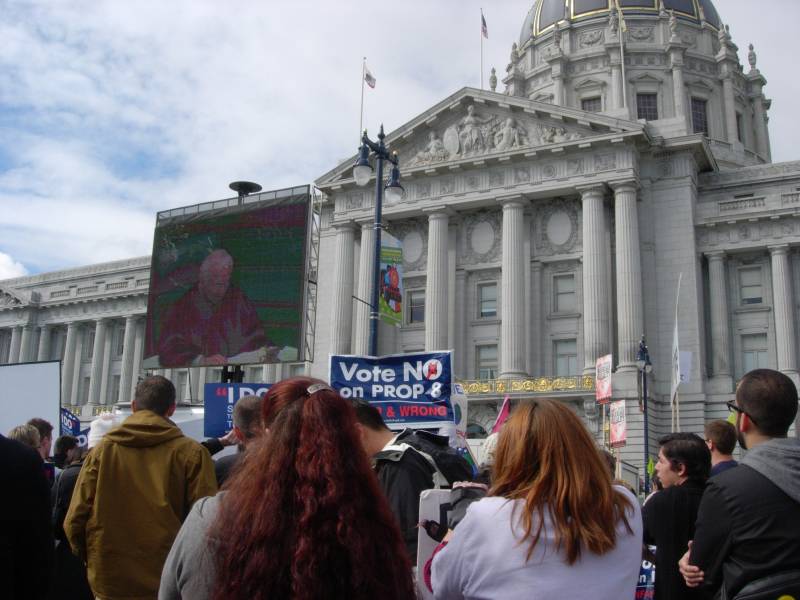The ruling concludes a 12-year effort by a media coalition led by KQED to make public video documentation of this important moment in the advancement of LGBTQ+ rights.
SAN FRANCISCO, CA – The U.S. Supreme Court today paved the way for the release of videotapes from the 2009-2010 Proposition 8 trial that led to the legalization of same-sex marriage in California. The decision not to take up an appeal made by supporters of Prop. 8 came after a 12-year effort by KQED and its counsel, Thomas R. Burke, who argued for the release of the tapes, which document an important historical moment in the fight for LGBTQ+ rights in California.
Prop. 8, which passed in 2008, banned same-sex marriage in California. The subsequent trial, Perry v. Schwarzenegger, questioned whether Prop. 8 violated the U.S. Constitution. Judge Vaughn Walker ruled in favor of the right to same-sex marriage, but said at the time that videotapes of the trial would remain sealed for 10 years.
As the court-ordered embargo on the tapes neared expiration, KQED filed a motion with the Ninth Circuit to unseal the tapes. That motion was granted, then appealed by some Prop. 8 proponents, who argued the tapes should remain sealed permanently. The District Court Judge William H. Orrick dismissed that case in July 2020, and Prop. 8 supporters subsequently filed a petition with the U.S. Supreme Court, maintaining that unsealing the tapes could lead to harm or harassment of anyone directly involved in the trial. But today the U.S. Supreme Court declined to take up that appeal.
The effort to make these historic tapes public was spearheaded by Scott Shafer, senior editor for KQED's politics and government desk and co-host of the Political Breakdown podcast. Shafer has covered the Prop. 8 trial and subsequent contest over these tapes extensively for KQED.
